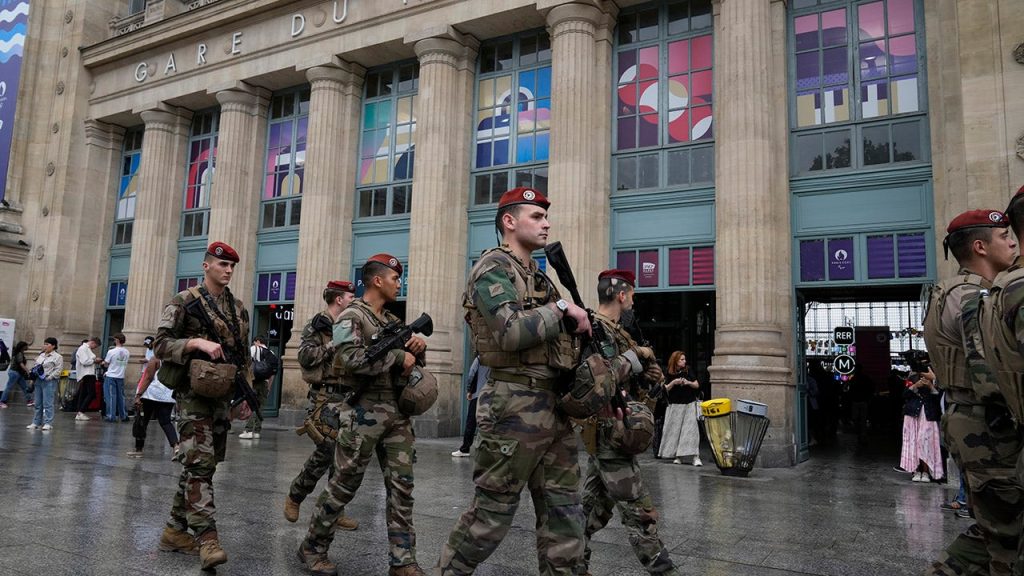French Interior Minister Gérald Darmanin announced the arrest of an “ultra-left activist” for allegedly breaking into a railway site in Seine-Maritime, France. This comes as a national investigation continues into last week’s arson attacks on train networks that reportedly affected nearly one million passengers hours before the 2024 Paris Olympics opening ceremony. The suspect was apprehended on Sunday at an SNCF site, but the Paris prosecutor’s office stated that he could not immediately be connected to the arson attacks at that time. The interior minister referenced a report from Le Figaro in announcing the arrest, and a police source revealed that the man was found with items such as access keys to SNCF premises, cutting pliers, and far-left literature in his possession.
Authorities reported that the man was apprehended after a train conductor witnessed him near a railway electrical cabinet, with the suspect fleeing the area upon being seen. The individual was later detained when he returned to retrieve his vehicle. Darmanin stated that the acts of sabotage last week were carried out in a very precise and voluntary manner, indicating the involvement of the ultra-left. He expressed concern about the specific locations targeted, which were crucial for communication, and suggested that the operation was well-organized and not random. Fiber optic cables near the tracks were reportedly cut and set on fire in multiple locations, affecting safety information transmission to train drivers.
Despite the ongoing national investigation, train traffic had largely resumed by Monday. However, incidents of vandalism affecting telecommunications lines occurred overnight Sunday into Monday, impacting fiber lines and fixed and mobile phone services. The French government condemned these acts and stated that repairs were underway to restore the damaged sites to service. Six administrative departments in France were affected, including the region around Marseille, which was hosting Olympic soccer and sailing events. Telecom operators like Bouygues, Free, and SFR reported disruptions to their services, prompting efforts to restore normal operations and ensure minimal impact on the Olympics activities.
The disruption to telecommunications services added to the challenges faced by authorities in the aftermath of the arson attacks on the train networks. The arrest of the suspected ultra-left activist shed light on potential motives behind the incidents, with speculation about manipulation or personal gain. The accurate targeting of crucial communication infrastructure suggested a well-planned operation organized by a specific group. The incident underscored the vulnerability of critical infrastructure to sabotage and raised concerns about the potential impact of such actions on public safety and national security. The ongoing investigations aimed to uncover the full extent of the sabotage and bring those responsible to justice.
The attacks on the train networks just hours before the Paris Olympics opening ceremony highlighted the disruptive power of such acts of sabotage. The impact on nearly a million passengers and the subsequent disruption to telecommunications services underscored the broader implications of these incidents. The response from law enforcement and government officials demonstrated a commitment to addressing the challenges posed by such deliberate acts of vandalism and disruption. Moving forward, efforts to enhance security measures and safeguard critical infrastructure against potential threats would be crucial to ensuring the safety and stability of public transportation networks and essential communication services. The aftermath of these incidents would likely prompt a reevaluation of security protocols and coordination among relevant stakeholders to prevent similar disruptions in the future.













